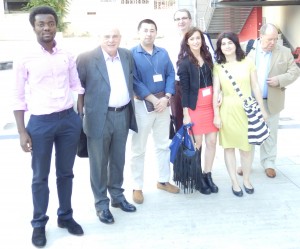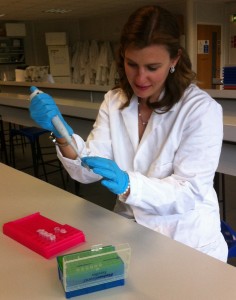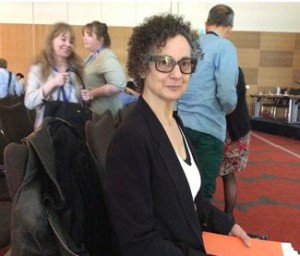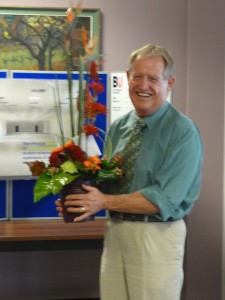The following funding opportunities have been announced. Please follow the links for more information.
Biotechnology and Biological Sciences Research Council invites applications for funding for the delivery of Exploring Innovation seminars. These enable universities and institutes to deliver events to facilitate discussion and improve awareness of knowledge exchange and commercialisation of BBSRC-supported research. The event may include a half day with networking and panel discussion for academic staff and academic-related colleagues involved in developing the programme and encouraging attendance. Audience or speakers could include academic staff, university business development staff, knowledge exchange professionals, technology transfer specialists, patent attorneys, KTP advisors and representatives of life sciences businesses. Potential discussion topics include the following: case studies of practical approaches for working with business and other user organisations; research organisation strategy and policy surrounding intellectual asset management; practical and flexible approaches to achieve greater impact in areas related to intellectual property rights in biological sciences, formation of spin-out companies, research and development, licensing, consultancy, collaborative R&D, open innovation or social enterprise; BBSRC support and funding mechanisms for knowledge exchange; networking and sharing of best practice. Applicants should be research organisations that are in receipt of funding from BBSRC. Applications that are coordinated across departments or between different organisations are encouraged. Funding may be used to contribute towards the costs of external speakers, room fees, time spent in organising the event and any other reasonable costs, excluding lunch and refreshments.
Maximum award: £2k. Closing date: not specified.
Economic and Social Research Council invites expressions of interest for a collaborative Knowledge Exchange Fellowship. The fellowship will enable a mid-career academic to develop skills and experience of knowledge exchange and impact activities by working on behalf of the council’s Urban Transformations portfolio, where they will promote opportunities for policy and wider societal impact, with particular emphasis on the Foresight Future of Cities project and its wider network of cities’ stakeholders. The programme may offer opportunities for reflection and the advancement of academic career priorities as well as directly contributing to the work of the two programmes.
Maximum award: £80k at 80% fEC for 12 months. Closing date: 01/07/15.
Engineering and Physical Sciences Research Council invites proposals for access to ARCHER through its resource allocation panel. This scheme provides access to the council’s national state-of-the-art high performance computing facility for proposals that are within the council’s remit and that would benefit from ARCHER. Proposals may include short computational projects that do not warrant a full grant application, projects that link consecutive standard grant applications or that aid the preparation of a grant or fellowship, extended feasibility studies, and trialling application developments at scale. Computing resources on ARCHER are awarded in kilo-allocation units with one kAU representing a measure of relative performance of ARCHER based on a range of benchmarks compared to previous national services. One core hour equates to 0.015kAU. Users can request significant amounts of computing resource (>1,000kAU) over a maximum one-year period. Although there is no limit to the number of kAUs that can be applied for, there is a limit to the total amount of kAUs available against this call: around 300,000 kAU, or 20 million core hours.
Maximum award: N/A. Closing date: 4pm, 07/09/15.
Engineering and Physical Sciences Research Council, as part of the Research Councils UK Energy Programme, invites registrations of intent for its call on reducing energy demand in the transport sector. Funding supports interdisciplinary collaborative research to reduce energy demand in the energy sector. Proposals with innovation in engineering, physical sciences or information and communication technologies, together with an application, business and economic modelling, and considering behavioural aspects of transport systems, are particularly encouraged. Furthermore, proposals should address the following research challenges: decarbonising freight using multidisciplinary research, including behaviour, economics, governance and technology; energy demand implications of technological, institutional and infrastructural change; vehicle design to meet challenging mobility needs in an integrated transport system.
Maximum award: £2 million. Closing date: Registrations of intent 4pm, 31/07/15.
Engineering and Physical Sciences Research Council and the Natural Environment Research Council invite technical assessments and applications for their ARCHER leadership projects. Awards provide direct access to the UK’s national supercomputing facility ARCHER for computationally intensive individual projects. Eligible projects may include the following: leadership calculations that push the boundaries of scientific high performance computing; calculations that require a large number of processing cores; high-risk, high-reward projects that rely heavily on high performance compute resource and have significant potential for large future impact; substantial computational projects by experienced teams that need large compute resources, but do not rely on additional support by EPSRC or NERC; pre-competitive computational production runs by non-academic research groups within sectors related to the remits of the ARCHER partner research councils. A total of maximum 2 million kAU is available, split between EPSRC and NERC remits at the ratio of 77 per cent EPSRC and 23 per cent NERC. Each applicant should apply for at least 100,000 kAU for a maximum period of two years.
Maximum award: N/A. Closing date: 4pm, 01/09/15.
Leverhulme Trust invites applications for its Visiting Professorships. These enable UK institutions to host eminent researchers from overseas, primarily to enhance the skills of academic staff or students at the host institution. Visiting professors may also wish to use the opportunity to further their own academic interests. Any field of research is eligible. Applications must be made by a member of academic staff, based in a UK university or other higher education institution, who will be responsible for coordinating the visit. Priority is given to new or recent collaborative ventures. Funding covers maintenance, travel expenses and research costs and supports visits that last between three and 12 months. Travel within the UK, laboratory consumables and essential technical assistance may also be covered.
Maximum award: Not specified. Closing date: 4pm, 08/10/15.
Medical Research Council invites applications for its Discovery Awards. These support discovery research in areas with potential for development, which are strategically sound within the institution’s strategy and are important nationally. All discoveries relevant to the MRC’s remit are accepted, and applicants are encouraged to explore how awards could be used to develop interdisciplinary interactions, for example by linking with physical sciences, mathematics and social sciences. Awards support recruitment or initial development of new PIs at junior or senior levels, or linked pilot work or technology and methods development. Institutions are expected to initiate and build critical mass and capacity in otherwise underexplored, high-potential areas of research, which may not yet compare to more established fields but have a clear vision for development.
Maximum award: £1 million. Closing date: 10/08/15.
Medical Research Council together with the Vietnamese Ministry of Science and Technology, and with support from the Newton Fund, invites proposals for its UK-Vietnam infectious disease research call. This supports collaborative UK-Vietnamese biomedical research in health areas of importance to the Vietnamese population, leading to health benefits in Vietnam, particularly for the poorest and most vulnerable in society. Areas of particular interest include antimicrobial resistance, vaccine development for humans and malaria. Each proposal must involve a UK partner and one based in Vietnam. Interdisciplinary collaborations are particularly welcome.The budget for this call is £2.6 million, with up to £2m available from MRC for UK collaborators and up to £600,000 from MOST for Vietnamese collaborators. Funding is expected to support a maximum of five projects, worth up to £520,000 per project over two to three years.
Maximum award: £520k. Closing date: 15/07/15.
Medical Research Council, the Department for International Development and the Wellcome Trust invite proposals for their joint Global Health Trials scheme. This funds trials to generate new knowledge about interventions that will contribute to the improvement of health in low- and middle-income countries. Priority is given to proposals that are likely to produce implementable results and that address the major causes of mortality or morbidity in low- and middle-income countries. The focus is primarily on late-stage clinical and health intervention trials evaluating efficacy and effectiveness. The scheme is aimed at funding randomised controlled trials, but innovative trial methodologies and adaptive designs are also welcome. Phase IIb trials of major relevance may also be considered. Proposals for research into chronic non-communicable diseases and reproductive, maternal and newborn health are particularly welcomed. The scope encompasses interventions of all kinds, including behavioural and complex interventions, disease management, drugs, vaccines, hygiene and diagnostic strategies. The scheme is open to principal investigators based in low- or middle-income economies at higher education institutions and non-profit research institutions, and principal investigators based in UK HEIs, research council institutes and eligible independent research organisations.
Maximum award: Not specified. Closing date: 10/09/15.
Natural Environment Research Council invites applications for its Collaborative Gearing scheme. This offers opportunities for fieldwork-based scientific collaboration with NERC’s British Antarctic Survey, in cases where no funding for salaries, grants or other direct science costs is required, but where access to BAS Antarctic facilities and research stations would enable fieldwork to be conducted for the proposed project. Proposed projects must be allied to the BAS science programme.
Maximum award: Not specified. Closing date: 4pm, 31/03/16.
The World Health Organization, together with the European and Developing Countries Clinical Trials Partnership and the UK Medical Research Council, invites proposals for research and capacity development in support of the Ebola virus disease response. The previous deadline of 18 June 2015 has now been extended to 6 August 2015. This call aims to build and strengthen regional, national, institutional and individual capacities to conduct high quality health research during infectious disease outbreaks resulting in health emergencies. Proposals should address at least one of the following areas: establish training or other capacity building activities for healthcare and laboratory personnel to detect and respond to infectious disease epidemics, conduct clinical trials and analyse samples in an emergency context to ensure clinical trial site preparedness; generate evidence for and implement ethically sound approaches to the introduction and clinical testing of new prevention tools or treatments during outbreaks of Ebola virus disease or other emerging infectious diseases of particular relevance to Africa; identify and implement best practices for building both community and national health authority support and engagement in clinical trials being conducted in emergency situations, including activities related to the development of appropriate mechanisms for surveillance, identification, tracking and referral of cases, as well as reintegration of survivors into the community. Consortia of researchers composed of at least one legal entity may apply. Projects involving transnational collaboration and regional networking are encouraged. Applicants are encouraged to establish links with relevant WHO and EDCTP-funded activities.
Maximum award: €250k. Closing date: 06/08/15.
Please note that some funding bodies specify a time for submission as well as a date. Please confirm this with your RKEO Funding Development Officer
You can set up your own personalised alerts on Research Professional. If you need help setting these up, just ask your School’s/Faculty’s Funding Development Officer in RKEO or view the recent blog post here.
If thinking of applying, why not add notification of your interest on Research Professional’s record of the bid so that BU colleagues can see your intention to bid and contact you to collaborate.


























 FHSS academics teaching in Nepal
FHSS academics teaching in Nepal New weight change BU paper
New weight change BU paper One week to go! | The 16th Annual Postgraduate Research Conference
One week to go! | The 16th Annual Postgraduate Research Conference Geography and Environmental Studies academics – would you like to get more involved in preparing our next REF submission?
Geography and Environmental Studies academics – would you like to get more involved in preparing our next REF submission? Congratulations to three former BU staff
Congratulations to three former BU staff MSCA Staff Exchanges 2024 Call – internal deadline
MSCA Staff Exchanges 2024 Call – internal deadline Applications are now open for 2025 ESRC Postdoctoral Fellowships!
Applications are now open for 2025 ESRC Postdoctoral Fellowships! Horizon Europe – ERC CoG and MSCA SE webinars
Horizon Europe – ERC CoG and MSCA SE webinars MaGMap: Mass Grave Mapping
MaGMap: Mass Grave Mapping ERC grants – series of webinars
ERC grants – series of webinars